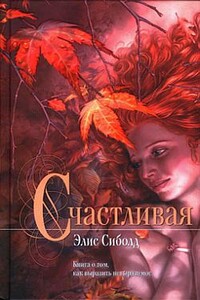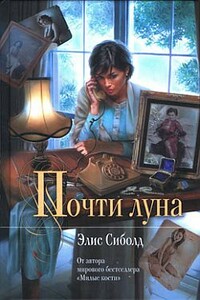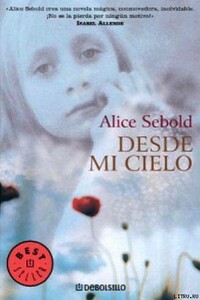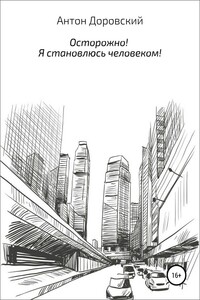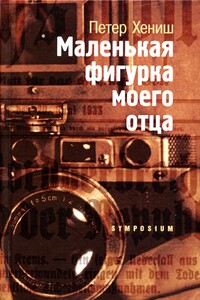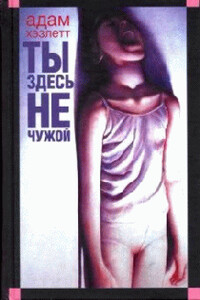She came with her father. They were standing in the corner near the glass case that held a chalice used during the Revolutionary War, when the church had been a hospital. Mr. and Mrs. Dewitt were making small talk with them. At home on her desk, Mrs. Dewitt had a poem of Ruth’s. On Monday she was going to the guidance counselor with it. It was a poem about me.
“My wife seems to agree with Principal Caden,” Ruth’s father was saying, “that the memorial will help allow the kids to accept it.”
“What do you think?” Mr. Dewitt asked.
“I think let bygones be bygones and leave the family to their own. But Ruthie wanted to come.”
Ruth watched my family greet people and noted in horror my sister’s new look. Ruth did not believe in makeup. She thought it demeaned women. Samuel Heckler was holding Lindsey’s hand. A word from her readings popped into her head: subjugation. But then I saw her notice Hal Heckler through the window. He was standing out by the oldest graves in the front and pulling on a cigarette butt.
“Ruthie,” her father asked, “what is it?”
She focused again and looked at him. “What’s what?”
“You were staring off into space just now,” he said.
“I like the way the graveyard looks.”
“Ah kid, you’re my angel,” he said. “Let’s grab a seat before the good ones get taken.”
Clarissa was there, with a sheepish-looking Brian Nelson, who was wearing a suit of his father’s. She made her way up to my family, and when Principal Caden and Mr. Botte saw her they fell away and let her approach.
She shook hands with my father first.
“Hello, Clarissa,” he said. “How are you?”
“Okay,” she said. “How are you and Mrs. Salmon?”
“We’re fine, Clarissa,” he said. What an odd lie, I thought. “Would you like to join us in the family pew?”
“Um” – she looked down at her hands – “I’m with my boyfriend.”
My mother had entered some trancelike state and was staring hard at Clarissa’s face. Clarissa was alive and I was dead. Clarissa began to feel it, the eyes boring into her, and she wanted to get away. Then Clarissa saw the dress.
“Hey,” she said, reaching out toward my sister.
“What is it, Clarissa?” my mother snapped.
“Um, nothing,” she said. She looked at the dress again, knew she could never ask for it back now.
“Abigail?” my father said. He was attuned to her voice, her anger. Something was off.
Grandma Lynn, who stood just a bit behind my mother, winked at Clarissa.
“I was just noticing how good Lindsey looked,” Clarissa said.
My sister blushed.
The people in the vestibule began to stir and part. It was the Reverend Strick, walking in his vestments toward my parents.
Clarissa faded back to look for Brian Nelson. When she found him, she joined him out among the graves.
Ray Singh stayed away. He said goodbye to me in his own way: by looking at a picture – my studio portrait – that I had given him that fall.
He looked into the eyes of that photograph and saw right through them to the backdrop of marbleized suede every kid had to sit in front of under a hot light. What did dead mean, Ray wondered. It meant lost, it meant frozen, it meant gone. He knew that no one ever really looked the way they did in photos. He knew he didn’t look as wild or as frightened as he did in his own. He came to realize something as he stared at my photo – that it was not me. I was in the air around him, I was in the cold mornings he had now with Ruth, I was in the quiet time he spent alone between studying. I was the girl he had chosen to kiss. He wanted, somehow, to set me free. He didn’t want to burn my photo or toss it away, but he didn’t want to look at me anymore, either. I watched him as he placed the photograph in one of the giant volumes of Indian poetry in which he and his mother had pressed dozens of fragile flowers that were slowly turning to dust.
At the service they said nice things about me. Reverend Strick. Principal Caden. Mrs. Dewitt. But my father and mother sat through it numbed. Samuel kept squeezing Lindsey’s hand, but she didn’t seem to notice him. She barely blinked. Buckley sat in a small suit borrowed for the occasion from Nate, who had attended a wedding that year. He fidgeted and watched my father. It was Grandma Lynn who did the most important thing that day.

